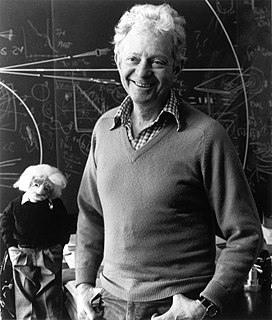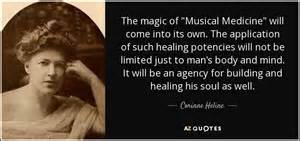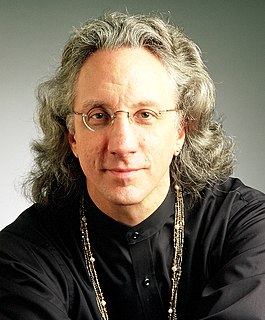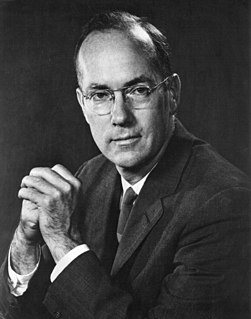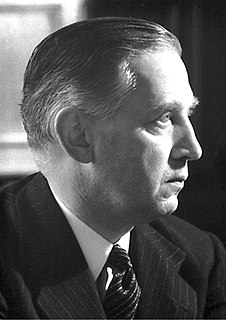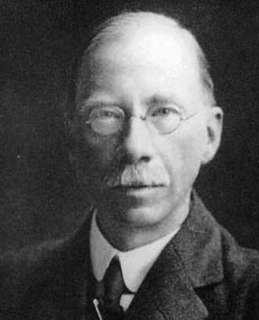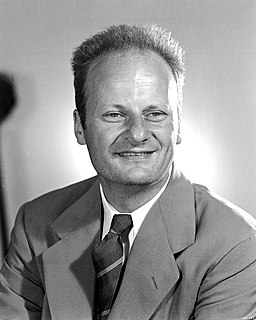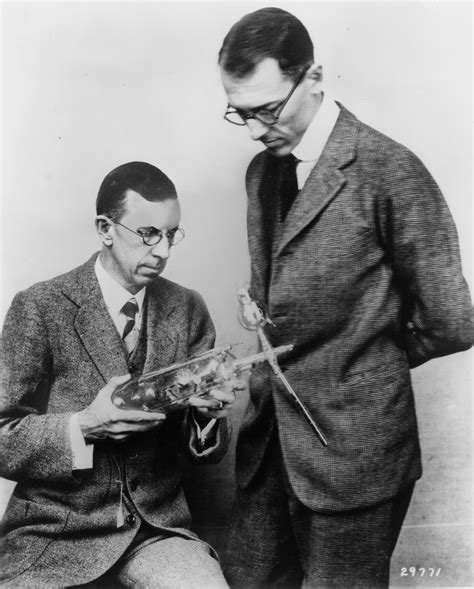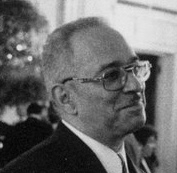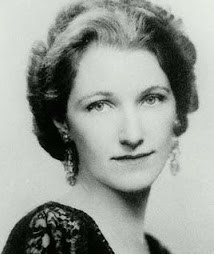Top 235 Physicist Quotes & Sayings - Page 4
Explore popular Physicist quotes.
Last updated on November 10, 2024.
Had I lived in Norman and those bands hadn't existed, who knows where I'd be, I might be doing something awful; I might be a doctor, or a physicist or something. Having those kinds of experiences at 12...the Chainsaw Kittens had a flamboyant homosexual lead singer, and the Flaming Lips were obviously very weird. I had only listened to the radio before that - things like Willie Nelson - so having people say, "These are the bands around here that you should listen to," I was like "Ok, I guess this is what normal music sounds like." That definitely changed things.
A theoretical physicist can spend his entire lifetime missing the intellectual challenge of experimental work, experiencing none of the thrills and dangers - the overhead crane with its ten-ton load, the flashing skull and crossbones and danger, radioactivity signs. A theorist's only real hazard is stabbing himself with a pencil while attacking a bug that crawls out of his calculations.
I wanted to write about the time when science became modern, around the 1950s. Right after physicist J. Robert Oppenheimer, science started being so politicized and used as such a political weapon. When my father, who is a scientist, tells me about those years, I get a competing portrait of people who were expected to behave normally and be decent respectable members of society and who were also allowed this freedom to think in big and expansive ways. Now, when you think about people who work in labs, they're allowed to be socially inept in a very fundamental way.
Physical objects are conceptually imported into the situation as convenient intermediaries not by definition in terms of experience, but simply as irreducible posits comparable, epistemologically, to the gods of Homer . . . For my part I do, qua lay physicist, believe in physical objects and not in Homer's gods; and I consider it a scientific error to believe otherwise. But in point of epistemological footing, the physical objects and the gods differ only in degree and not in kind. Both sorts of entities enter our conceptions only as cultural posits.
The students we saw were all bright, attractive, and polite, and the teachers all seemed to be smart and dedicated, and I began to appreciate the benefits of a private school education. If only I'd had the opportunity to attend a place like this, who knows what I might have become? Perhaps instead of a mere blood-spatter analyst who slunk away at night to kill without conscience, I could have become a doctor, or a physicist, or even a senator who slunk away at night to kill without conscience. It was terribly sad to think of all my wasted potential.
At a certain stage of our progressive attainment, every Initiate undergoes an "Illumination by Sound" in which the Music of the Spheres becomes to us a living reality. When the magical powers of sound are rediscovered and scientifically directed to the specific purpose of healing... and when man has learned how to release the mantraic powers embodied in such inspired utterances, he will master the energies transcending even those unleashed by the atomic physicist of today. They will be energies of yet another and higher dimension.
You might argue that my example is bad because Einstein is dead. But according to physicist Erwin Schrodinger, Einstein is neither dead nor alive until we dig him up and open the casket. If he's alive, he might want his brain back, which I understand is in a Ziplock bag in some guy's freezer. And this is a perfect example of why examples always distract from the main point.
When I was younger, I read a book by Frank Barnaby, this wonderful nuclear physicist - he said that media had a responsibility, that all sectors of society had a responsibility to try and progress things and move things forward. And that fascinated me, because I'd been messing around with a camera most of my life.
The poet Muriel Rukeyser said the universe is composed of stories, not of atoms. The physicist Werner Heisenberg declared that the universe is made of music, not of matter. And we believe that if you habitually expose yourself to toxic stories and music, you could wind up living in the wrong universe, where it's impossible to become the gorgeous genius you were born to be. That's why we implore you to nourish yourself with delicious, nutritious tales and tunes that inspire you to exercise your willpower for your highest good.
I have an abiding interest in how ordinary people produce knowledge, and what it means for individuals to know the world. I thought I'd be a theoretical physicist because I love physicists' views of the world - I find general relativity and quantum theory thrilling - but I have always felt uneasy with the idea of an Ultimate Truth. One of the functions of science is to help us instrumentally; it helps us to build things like microchips and GPS satellites. But another function of science in the modern world is to help us feel "at home in the universe".
A. Douglas Stone, a physicist who has spent his life using quantum mechanics to explore striking new phenomena, has turned his considerable writing skills to thinking about Einstein and the quantum. What he finds and makes broadly understandable are the riches of Einstein's thinking not about relativity, not about his arguments with Bohr, but about Einstein's deep insights into the quantum world, insights that Stone shows speak to us now with all the vividness and depth they had a century ago. This is a fascinating book, lively, engaging, and strong in physical intuition.
Physicist Isador Isaac Rabi, who won a Nobel Prize for inventing a technique that permitted scientists to probe the structure of atoms and molecules in the 1930s, attributed his success to the way his mother used to greet him when he came home from school each day. "Did you ask any good questions today, Isaac?" she would say.
I vowed to myself that when I grew up and became a theoretical physicist, in addition to doing research, I would write books that I would have liked to have read as a child. So whenever I write, I imagine myself, as a youth, reading my books, being thrilled by the incredible advances being made in physics and science.
Man is slightly nearer to the atom than to the star. ... From his central position man can survey the grandest works of Nature with the astronomer, or the minutest works with the physicist. ... [K]nowledge of the stars leads through the atom; and important knowledge of the atom has been reached through the stars.
He was a physicist, more precisely an astrophysicist, diligent and eager but without illusions: the Truth lay beyond, inaccessible to our telescopes, accessible to the initiates. This was a long road which he was traveling with effort, wonderment, and profound joy. Physics was prose: elegant gymnastics for the mind, mirror of Creation, the key to man's dominion over the planet; but what is the stature of Creation, of man and the planet? His road was long and he had barely started up it, but I was his disciple: did I want to follow him?
In the 1920s the young English physicist Paul Dirac began trying to understand and describe the space-time evolution of the electron, the first elementary particle discovered by J.J. Thomson in 1897. Dirac was puzzled by an unprecedented property of space-time, discovered by Lorentz in his studies of electromagnetic forces, whereby if space was real, time had to be imaginary, and vice versa. In other words, space and time had to be a ‘complex’ mixture of two quantities, one real and the other imaginary.
In that memorable year, 1822: Oersted, a Danish physicist, held in his hands a piece of copper wire, joined by its extremities to the two poles of a Volta pile. On his table was a magnetized needle on its pivot, and he suddenly saw (by chance you will say, but chance only favours the mind which is prepared) the needle move and take up a position quite different from the one assigned to it by terrestrial magnetism. A wire carrying an electric current deviates a magnetized needle from its position. That, gentlemen, was the birth of the modern telegraph.
Everything that you've learned: 'Make a lot of money, have a nice house'. But they never teach you at school how to relate, how to communicate with others, how to share values with others. ...They teach you how to make a living. You become an optometrist, he becomes a physicist, she becomes a structural engineer, he's an architect. In the future, none of that. Everybody is trained to be a generalist, so they understand different cultures, different values, how we get to be the way we are. So no-one can ever use you for war or killing anybody or hurting anybody
I read once, which I loved so much, that this great physicist who won a Nobel Prize said that every day when he got home, his dad asked him not what he learned in school but his dad said, 'Did you ask any great questions today?' And I always thought, what a beautiful way to educate kids that we're excited by their questions, not by our answers and whether they can repeat our answers.
Our greatest theoretical physicist, Stephen Hawking, recently declared that humans have no more than a hundred years to get off this planet to ensure the survival of our species. And when someone such as he does so, it is with an understanding not just of the science, but of both our tenuous place and our possibility in the universe.
At least this is the way I see it. I am a physicist. I also consider myself a Christian. As I try to understand the nature of our universe in these two modes of thinking, I see many commonalities and crossovers between science and religion. It seems logical that in the long run the two will even converge.
Since the death of Nikola Tesla in 1943, his life has deserved a worthy biography. Bernard Carlson has delivered that in Tesla: Inventor of the Electrical Age, which portrays Tesla as intensely human. . . . Anyone, whether simply an interested reader or a professional historian, engineer, or physicist, will finish Tesla with a deepened understanding of his world, character, and accomplishments.
In Paris, friend of Bequerel’s, a young physicist-chemist couple named Pierre and Marie Curie, began to scour the natural world for even more powerful chemical sources of X-rays. Pierre and Marie (then Maria Sklodowska, a penniless Polish immigrant living in a garret in Paris) had met at the Sorbonne and been drawn to each other because of a common interest in magnetism.
I think it's science and physics are just starting to learn from all these experiments. These experiments have been carried out hundreds and hundreds of times in all sorts of ways that no physicist really questions the end point. I think that these experiments are very clearly telling us that consciousness is limitless and the ultimate reality.
The physicist, in his study of natural phenomena, has two methods of making progress: (1) the method of experiment and observation, and (2) the method of mathematical reasoning. The former is just the collection of selected data; the latter enables one to infer results about experiments that have not been performed. There is no logical reason why the second method should be possible at all, but one has found in practice that it does work and meets with reasonable success.
But even technical work filled with formulas can be valuable and important. Einstein offered a lot of technical work on quantum physics, which mostly eludes me. I refer to his work, and I have studied it, but I am not a physicist. But look at Einstein's simple statement that the most important decision you ever will make is the decision whether you live in a friendly universe or a hostile universe.
I get heartfelt thanks from all kinds of people. Today I heard from a waitress in Georgia who has lost her job and is trying to figure out how her local bank can change the terms on her credit card, and I heard from a physicist at a major research university who wants to explain a better theory of financial stress tests.
The investigation of causal relations between economic phenomena presents many problems of peculiar difficulty, and offers many opportunities for fallacious conclusions. Since the statistician can seldom or never make experiments for himself, he has to accept the data of daily experience, and discuss as best he can the relations of a whole group of changes; he cannot, like the physicist, narrow down the issue to the effect of one variation at a time. The problems of statistics are in this sense far more complex than the problems of physics.
No one any longer pays attention to - if I may call it - the spirit of physics, the idea of discovery, the idea of understanding. I think it's difficult to make clear to the non-physicist the beauty of how it fits together, of how you can build a world picture, and the beauty that the laws of physics are immutable.
People will listen to sophisticated physicists, using God as a kind of metaphor for the deep constants, the deep problems, the deep principles of physics, and say that in that sense I believe in God. The reaction is, "Oh, this great physicist believes in God - that means I'm free to believe in the trinity and in the crucifixion and in the reincarnation of Christ" - and all that stuff, which of course has nothing whatever to do with the fundamental constants of physics, which is what these physicists are talking about.
Nature is not personal. She is the compound of all these processes which move through the universe to effect the results we know as Life and of all the ordinances which govern that universe and that make Life continuous. She is no more the Hebrew's Jehovah than she is the Physicist's Force; she is as much Providence as she is Electricity; she is not the Great Pattern any more than she is the Blind Chance.
In the world of physics we watch a shadowgraph performance of the drama of familiar life. The shadow of my elbow rests on the shadow table as the shadow ink flows over the shadow paper. It is all symbolic, and as a symbol the physicist leaves it. ... The frank realisation that physical science is concerned with a world of shadows is one of the most significant of recent advances.
Does the engineer ever predict the acceleration of a given body from a knowledge of its mass and of the forces acting upon it? Of course. Does the chemist ever measure the mass of an atom by measuring its acceleration in a given field of force? Yes. Does the physicist ever determine the strength of a field by measuring the acceleration of a known mass in that field? Certainly. Why then, should any one of these roles be singled out as the role of Newton's second law of motion? The fact is that it has a variety of roles.
The physicist is like someone who's watching people playing chess and, after watching a few games, he may have worked out what the moves in the game are. But understanding the rules is just a trivial preliminary on the long route from being a novice to being a grand master. So even if we understand all the laws of physics, then exploring their consequences in the everyday world where complex structures can exist is a far more daunting task, and that's an inexhaustible one I'm sure.
The story is told of Lord Kelvin, a famous Scotch physicist of the last century, that after he had given a lecture on atoms and molecules, one of his students came to him with the question, "Professor, what is your idea of the structure of the atom." "What," said Kelvin, "The structure of the atom? Why, don't you know, the very word 'atom' means the thing that can't be cut. How then can it have a structure?" "That," remarked the facetious young man, "shows the disadvantage of knowing Greek."
Statistics is, or should be, about scientific investigation and how to do it better, but many statisticians believe it is a branch of mathematics. Now I agree that the physicist, the chemist, the engineer, and the statistician can never know too much mathematics, but their objectives should be better physics, better chemistry, better engineering, and in the case of statistics, better scientific investigation. Whether in any given study this implies more or less mathematics is incidental.
My mom is an experimental chemist and physicist, so she is a cut-and-dried, nuts-and-bolts kind of woman, and my dad is a theoretical chemist, so we were definitely raised with his philosophical point of view: imaginary numbers and dimensions beyond our own. That's the kind of thing we would talk about.
Not bodies produce sensations, but element-complexes (sensation-complexes) constitute the bodies. When the physicist considers the bodies as the permanent reality, the 'elements' as the transient appearance, he does not realise that all 'bodies' are only mental symbols for element-complexes (sensation-complexes).
Somebody once asked Niels Bohr why he had a horseshoe hanging above the front door of his house. Surely you, a world famous physicist, can't really believe that hanging a horseshoe above your door brings you luck? Of course not, Bohr replied, but I have been reliably informed that it will bring me luck whether I believe in it or not.
Faith should be pulled into the public arena when it affects how we live. If it doesn't, it does no earthly good. What does my faith say about the fact that a girl can't be a nuclear physicist because she's black and from the inner city? My faith says, no, that's not what God intended. It pulls it back into the public arena the idea that there's got to be something fair for all of us.
I began my career as a physicist. And in the White House, my buddies were the people from the White House office of science and technology policy. But a lot of the people were lawyers. They like winning an argument, but science-based, evidence-based reasoning was just sort of not in their framework.
There were a number of particularly delightful incidents. There is, for example, the physicist who introduced me to one of my favorite laws, which he described as Murphys law or the fourth law of thermodynamics (actually there were only three last I heard) which states: If anything can go wrong it will.
Basically, my mum and dad bought me a CD player for my 14th birthday. They didn't really listen to music at all, but my dad had a couple of tapes that he'd listen to, like Tom Lehrer. My dad was a physicist and Tom Lehrer was like this really weird Harvard class professor, who was really cool because he was also a satirist and pianist.
If you want to get an interesting perspective do not think of Hugh as a traditional 20th century physicist but more of a Renaissance man with interests and skills in many different areas. He was smart and lots of things interested him and he brought the same general conceptual methodology to solve them. The subject matter was not so important as the solution ideas.
I am open to [the notion of theistic revelation], but not enthusiastic about potential revelation from God. On the positive side, for example, I am very much impressed with physicist Gerald Schroeder's comments on Genesis 1. That this biblical account might be scientifically accurate raises the possibility that it is revelation.
After Gibbs, one the most distinguished [American scientists] was Langley, of the Smithsonian. ... He had the physicist's heinous fault of professing to know nothing between flashes of intense perception. ... Rigidly denying himself the amusement of philosophy, which consists chiefly in suggesting unintelligible answers to insoluble problems, and liked to wander past them in a courteous temper, even bowing to them distantly as though recognizing their existence, while doubting their respectibility.
Can a physicist visualize an electron? The electron is materially inconceivable and yet, it is so perfectly known through its effects that we use it to illuminate our cities, guide our airlines through the night skies and take the most accurate measurements. What strange rationale makes some physicists accept the inconceivable electrons as real while refusing to accept the reality of a Designer on the ground that they cannot conceive Him?

